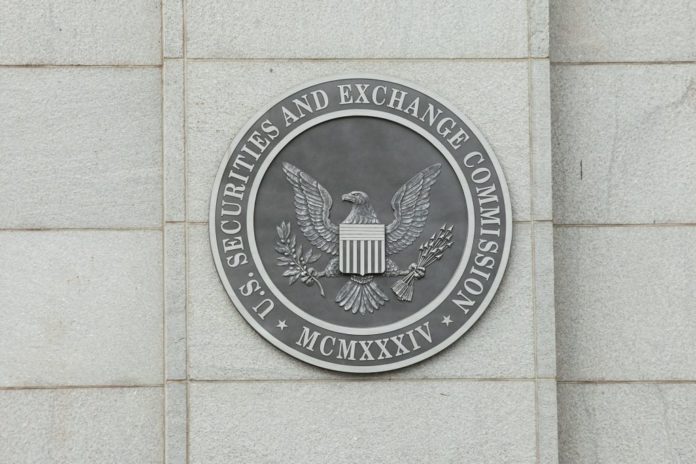SEC regulators want to help the industry grow—but they are watching it carefully.
The number of businesses going public in a specific industry usually marks the maturity and health of that industry. From an investor standpoint, the cannabis industry is on life support now, but the prognosis is good.
Documents are filed with regulatory agencies, such as the registration statements with the Securities and Exchange Commission (SEC) spelling out stock prices, shares of stocks, risk factors, executive compensation, financial statements, and a dozen other bits of required information about the company submitting its initial price offering.
About 200 publicly traded cannabis companies exist now, according to research by Viridian Capital Advisors, a firm tracking companies and working with investors in the cannabis industry. But, the industry stock market has been experiencing a huge correction, according to D. Paul Cohen, president of San Rafael, California-based Cohen Grassroots Research, one of the leading Wall Street cannabis research and investor consultancy firms following 286 cannabis companies. By the end of 2015, he said, the market had dropped 47 percent from the heady days of 2011.
Cohen said he doesn’t think the market is falling because of SEC filing and reporting obligations. In fact, he is a fan of the SEC—but not a fan of the industry. “This industry has the worst fundamentals I have ever seen, and I have been doing this for fifty years,” Cohen said.
Cannabis stocks’ share prices were down 14 to 15 percent in January, he said, and when multiplied by 12, the market could be down “well over 100 percent.”
“So, that is why the SEC has become very diligent in monitoring these firms,” Cohen noted. “I think they are right in doing that, because this industry attracts the get-rich-quick people, and the management of most of these public companies is just terrible. The management and board of directors turn over like a deck of cards.”
Many in the industry view the SEC as an enemy to the cannabis business. “I live with the colonoscopy of compliance as a broker-dealer that is under SEC oversight,” said Scott Greiper, president of Viridian Capital Advisors. “Until recently, the SEC was absolutely antagonistic to this sector.”
The SEC was alerted to issues in the cannabis business by various “pump-and-dump” schemes since 2011. Brokers positioned a business as the next great cannabis company and claimed stock prices and earnings would rise significantly. After they took investor money, the companies either disappeared or got crushed and the broker cashed in.
In July 2015, the SEC settled a case in which the agency charged two Texas men with a scheme to manipulate medical marijuana microcap (or penny) stocks. The con artists made off with $2.5 million, according to court documents.
There is hope the industry is settling down a bit and attracting better managers and institutional investors.
Most cannabis companies that want to go public do so through a reverse merger, a financial arrangement in which a private company takes control and merges with a dormant public (or shell) company with little or no assets that had already filed an initial public offering. The advantage to a reverse merger is the process takes only a few weeks to complete. The traditional IPO process can take from six to twelve months and cost significantly more.
Reverse mergers allow a private company to become public without raising capital, which considerably simplifies the process. In a new and struggling industry with little or no cash, reverse mergers are about the only way to go. Still, SEC scrutiny sometimes reveals trapdoors.
The SEC has demonstrated it can be both a company-killer and a cannabis industry game-changer.
Trading in GrowLife Inc., a cultivation services provider, was stopped by the SEC on April 22, 2014. The company was “the poster child for this industry,” Cohen said. “When the SEC stopped them from trading, that effectively killed this industry. That is when the bear market started.”
Although the suspension seemed mysterious at the time, the agency later revealed illuminating details: Investors involved with convertible securities apparently had made a deal with management related to the SEC’s Texas case.
The company began trading again four weeks later, but law firms stepped in and buried the company after a class-action lawsuit had been filed on behalf of securities investors in the company, Cohen said. Stock prices dove. In February, shares were trading for about 2 cents from a high of 91 cents in 2011.
The SEC’s role is not to rule on the merits of a particular company, but simply to require disclosure, according to David Feldman, a partner at Duane Morris, a New York-based law firm. “There is no question that cannabis-related companies are getting more scrutiny by the SEC,” he said. “[The SEC is] clearly cautious in their attitude in watching this industry.”
A couple of years ago, several cannabis-related companies unexpectedly went public through reverse mergers “because they were concerned about how the SEC would view their industry,” Feldman said. “With a reverse merger, you can go public without scrutiny prior to completing the process.”
In effect, the move was a shot in the dark. No one could predict how the SEC might react if someone presented a formal request to allow a public share offering. “The problem was that in some ways, like the early days of the Internet, there was a bit of a gold rush by these companies that were really nothing more than something created on a paper napkin and with the name ‘cannabis’ on it,” Feldman said. “There was this craze to build the valuation of these companies to hundreds of millions of dollars. But these were startups, and they had no money. It really didn’t make much sense.”
The SEC issued an investor alert and suspended trading for five companies in May 2014. The alert included GrowLife.
“But this alert didn’t say it was a bad industry,” Feldman said. “It didn’t say this is a federal crime and these companies shouldn’t be public. It just said to watch out for non-reporting companies.”
Under a new system called Reg A-Plus, cannabis companies now have a better option than reverse mergers, according to Feldman. The SEC released new Reg A-Plus rules in March 2015.
The new Reg A-Plus rules update and expand Regulation A, which is an existing exemption from SEC registration for smaller issuers of securities. The new rules offer a balancing act that protects investors while making public offerings simple and more cost-effective. “If you are a doing a traditional IPO, you can only test the waters with high institutional investors to see what their interest in the deal is before they buy,” Feldman said. “With Reg A-Plus, you can test the waters with any investor any time before or after you file. Investors that are looking to invest in cannabis companies are excited about that.”
No matter where things stand now with the SEC, significant risk of federal prosecution down the road continues to exist in a business sector that remains federally illegal.
Feldman offered an analogy: “What if someone came to the SEC and said, ‘We want to go public, and our business is that we rob banks. Is that OK?’”











